 A former mobile disc jockey, voiceover artist and Crazy Eddie store manager, William Westhoven was a full-time journalist from 1989 to 2011, when he fell victim to newspaper industry-wide layoffs. Since then, he has switched to fiction, writing and self-publishing novels. One-Hit Willie, a historical novel that covers 50 years of music in America, was released in December of 2011. The Puddingstone Well, a contemporary mystery-fantasy, was released on October 26, 2012, three days before Superstorm Sandy hit the Jersey Shore.
A former mobile disc jockey, voiceover artist and Crazy Eddie store manager, William Westhoven was a full-time journalist from 1989 to 2011, when he fell victim to newspaper industry-wide layoffs. Since then, he has switched to fiction, writing and self-publishing novels. One-Hit Willie, a historical novel that covers 50 years of music in America, was released in December of 2011. The Puddingstone Well, a contemporary mystery-fantasy, was released on October 26, 2012, three days before Superstorm Sandy hit the Jersey Shore.
Westhoven began writing his personal account of surviving the storm just three days after getting power restored in his North Jersey home on November 9. He spent the twelve days before that in his home without power or heat. On November 29, Superstorm Sandy: A Diary in the Dark was published through Amazon. I read the book and interviewed Westhoven on behalf of SPR via email on November 30.
SELF-PUBLISHING REVIEW: First and foremost, with regard to your forced separation during the storm and damage to your property, how are you and your wife faring personally since the lights came back on in your home?
WILLIAM WESTHOVEN: We’re fine now and thanks for asking. We just got a check from our insurance company for the various minor damage and loss we incurred. Still have to get our roof repaired, though. I need to call some contractors but I’ve been so busy getting this book written, formatted and published. For several reasons, I wanted to make sure it was the first legitimate book published about the Hurricane Sandy, and I really wanted it out within thirty days of the storm.
The biggest problem it may have caused for us personally is after a rather intensive two months of sharing the editing duties for my second novel, The Puddingstone Well, Lisa was probably looking for a break. We had just celebrated that launch with a book signing at a local bookstore on the Friday before the storm hit. Then I get this crazy idea and we end up editing on Thanksgiving. There wasn’t even any time for discussion. If I was going to do this, it had to be right away. Lisa is a lovely, patient woman, but she did make me promise not to write any more books until next year.
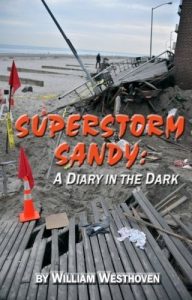 SPR: You say you wanted to make sure it was the “first legitimate book” published about the Hurricane. Can you share with us what a couple of those reasons are?
SPR: You say you wanted to make sure it was the “first legitimate book” published about the Hurricane. Can you share with us what a couple of those reasons are?
WW: For one, the need for money to help relief victims is urgent and I wanted to grab people’s attention while the event is still fresh in their minds. A year from now, I doubt if anyone is going to get excited about spending 99 cents to help this cause, even if they do get a book to read out of the deal.
Another reason is that I have an instinctive need to write and, as a longtime journalist, I’m used to writing about things as they happen.
Finally, I saw the opportunity to conduct a fascinating experiment and explore the growing creative possibilities made possible by the modern self-publishing industry. When something like this happens, you immediately see bands putting together fund-raising concerts or maybe writing a song and cutting a benefit single. And of course theater groups are always staging benefit performances. Why should they have all the fun? What about writers? EBooks and print on demand make it possible for us to make a similar kind of timely contribution.
SPR: You say you’re used to writing about things as they happen. But this book contains some rather personal narrative. Are you accustomed to ‘putting yourself out there’, especially in an (occasionally) self-critical fashion?
WW: Good question and the answer is absolutely not. I did some acting and studied theater in college and quickly learned that while I don’t mind public speaking or engaging crowds, I do not like to put myself out there on a stage. I prefer to leave the emoting to my fictional characters. And I prefer to keep my private life and private thoughts private.
But the opportunity I saw to do something special was too hard to resist. I knew my brain was loaded with stuff that needed to be written and if the goal was to make people feel the drama, the frustration, the sadness, and even the humor of what we all went through, then I was going to have to give the readers a first-person perspective they could connect with. That required a little more self-revelation than I’m usually comfortable with, but I gave it a shot.
SPR: You write in your book: “Less than a month after Sandy struck, I am still a little disoriented.” Other than educating and sharing with the general public and your fellow New Jersey residents, and other than your instinctive need to write stemming from your experience as a journalist, writing and publishing your twelve-day story appears to have given you an anchor on a personal level. Do you think the writing of the story, the process of putting the experience to paper in and of itself, would have felt the same without having the book “go public” so immediately?
WW: I probably would not have done it if I had stopped to think for a while. As committed to the deadline as I was, I knew I would not have a lot of time for editing and rewrites, so I wrote with the realization that this book would include some fresh, raw emotion and impulsive thoughts that I would not have a lot of time to second-guess. I certainly broke some new ground personally and professionally.
SPR: Pulling our POV back out again, you wrote in your book about several people you met at the shelter, conversing with neighbors you had never spoken to before, and taking countless drives around your general area to survey damage. As of this writing today, tell us what North Jersey still faces in the short term, why your book and so many other fundraising projects are each and every one necessary to the recovery there.
 WW: Up here in North Jersey, things are more or less back to normal, although there are still a lot of trees that need to be cleaned up and of course, individual property owners are dealing with damaged homes or cars, like the neighbor I wrote about. And mass transit is just getting back on schedule as well, which is a pretty big deal. A bunch of the key rail stations into New York were completely flooded. Remember, those river crossings into Manhattan are tunnels under the Hudson River. We only have so many ferries.
WW: Up here in North Jersey, things are more or less back to normal, although there are still a lot of trees that need to be cleaned up and of course, individual property owners are dealing with damaged homes or cars, like the neighbor I wrote about. And mass transit is just getting back on schedule as well, which is a pretty big deal. A bunch of the key rail stations into New York were completely flooded. Remember, those river crossings into Manhattan are tunnels under the Hudson River. We only have so many ferries.
But along the Jersey Shore, the storm actually altered the geography. Our barrier islands, most of which are overdeveloped, got crushed. The ocean met the bay in many places and we lost a lot of our beloved boardwalks. Most of those colorful boardwalk destinations the public knows from watching “Jersey Shore” on TV are pretty much obliterated.
The roads buckled as well and thousands of homes are uninhabitable, destroyed or completely gone. Downtown businesses, including a lot of mom and pops, were devastated as well. Thousands of people are still displaced from their homes and while they are in this stressful position, they must make their way through the maze of insurance and FEMA benefits that may be available to them. I keep reminding myself how hard my twelve days without power or heat were and realize I had it a lot easier than they did.
By special arrangement with the organization, sales proceeds from Superstorm Sandy: A Diary in the Dark go directly to the Hurricane Sandy New Jersey Relief Fund. A print edition is also available.
RELATED LINKS:
Get an Editorial Review | Get Amazon Sales & Reviews | Get Edited | Publish Your Book | Enter the SPR Book Awards | Other Marketing Services














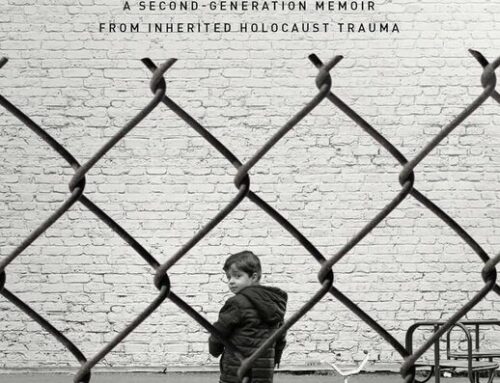




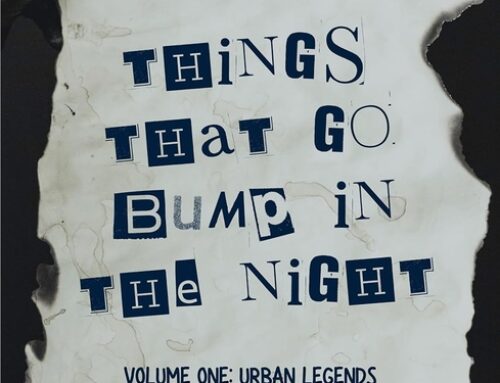
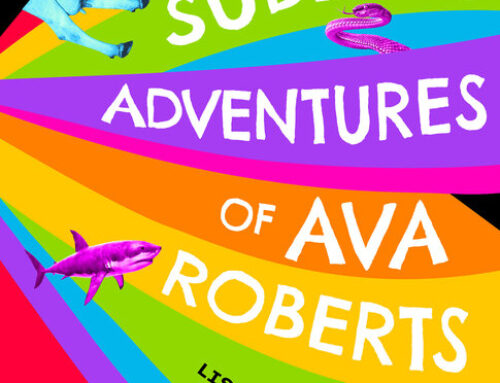
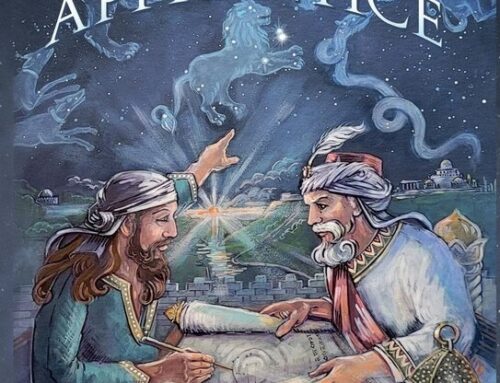
Leave A Comment